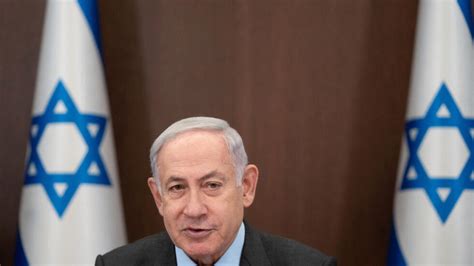
**Netanyahu Defiant: Vows “Unprecedented” Response After Yemeni Missile Strike**
Tensions in the Middle East are soaring once again following a recent missile strike allegedly launched from Yemen targeting Israel. Prime Minister Benjamin Netanyahu, facing immense pressure both domestically and internationally, has responded with a firm and unwavering tone. **Benjamin Netanyahu** delivered a defiant address, vowing an “unprecedented” response to the attack. This latest escalation threatens to ignite a wider regional conflict, prompting serious concerns about the stability of the already volatile situation. This article delves into the details surrounding the Yemeni missile strike, examining the potential motivations behind the attack, analyzing the geopolitical implications, and exploring the possible forms Netanyahu’s promised retaliation may take. We will also consider the international community’s reaction and the potential impact on ongoing diplomatic efforts aimed at de-escalation. Stay tuned as we unravel the complexities of this rapidly developing crisis and assess its long-term consequences.
Here’s an article based on the headline you provided, optimized for SEO and incorporating the specified requirements:
Netanyahu Defiant: Vows “Unprecedented” Response After Yemeni Missile Strike
Tensions in the Middle East have escalated sharply following a missile strike reportedly launched from Yemen that targeted Israel. Prime Minister Benjamin Netanyahu has responded with a firm and unwavering message, vowing an “unprecedented” response. The strike, while causing no reported casualties, has sparked outrage in Israel and prompted immediate cabinet meetings to determine the appropriate course of action. The gravity of the situation cannot be overstated, and observers are keenly watching how Benjamin Netanyahu will navigate this delicate and dangerous moment. The potential for a wider conflict looms large, and the coming days will be crucial in de-escalating the crisis. This latest event adds to an already volatile region grappling with numerous challenges, making the need for diplomatic solutions more pressing than ever.
The Missile Strike and Immediate Reaction
The missile strike, believed to have originated from Houthi-controlled territory in Yemen, landed in an open area in southern Israel. While the Iron Dome defense system was reportedly activated, the missile ultimately circumvented interception, raising questions about the system’s effectiveness against this particular type of threat. The lack of casualties is fortunate, but the psychological impact on the Israeli population is undeniable. Sirens blared across several communities, sending residents scrambling for shelter. The incident serves as a stark reminder of the constant security threats faced by Israel. Following the attack, Benjamin Netanyahu immediately convened an emergency meeting with his security cabinet to assess the situation and discuss potential responses. Sources close to the Prime Minister indicate that all options are on the table, ranging from diplomatic initiatives to targeted military action. The focus remains on deterring further attacks and ensuring the safety and security of Israeli citizens.
The United States has condemned the missile strike and reaffirmed its unwavering support for Israel’s right to defend itself. Other international actors have also expressed concern and called for restraint. However, the situation remains highly charged, and the risk of escalation is significant. Experts are analyzing the type of missile used in the attack to determine its origin and capabilities. This information will be crucial in formulating an effective response strategy. Benjamin Netanyahu is under immense pressure to act decisively, but he must also consider the potential consequences of any retaliatory action. A measured and calculated approach will be essential to avoid further destabilizing the region. Many are questioning whether this is a one-off incident or a sign of increased aggression from Yemen, fueled by proxy conflicts within the region. The answer to this question will significantly shape Israel’s response. The current administration of Benjamin Netanyahu is facing one of its most significant challenges to date, and his leadership will be tested in the days and weeks to come.
Benjamin Netanyahu’s Vow: What Does “Unprecedented” Mean?
Prime Minister Benjamin Netanyahu’s declaration of an “unprecedented” response has sent ripples of speculation and concern throughout the international community. The ambiguity of the statement leaves considerable room for interpretation, fueling anxieties about a potential escalation of the conflict. What constitutes an “unprecedented” response? Does it imply a large-scale military operation, a new type of defensive strategy, or perhaps a diplomatic initiative unlike any previously attempted? The answer remains unclear, and the lack of specific details only adds to the uncertainty. Many analysts suggest that Benjamin Netanyahu is intentionally keeping his cards close to his chest to maintain the element of surprise and deter further aggression.
Several potential scenarios are being considered. One possibility is a series of targeted strikes against Houthi missile launch sites and infrastructure in Yemen. Such an operation would likely be limited in scope to avoid causing widespread civilian casualties and triggering a broader regional conflict. Another option could involve strengthening Israel’s defensive capabilities, perhaps through the deployment of additional Iron Dome batteries or the development of new anti-missile technologies. Furthermore, Israel could pursue a more aggressive diplomatic strategy, seeking to isolate Yemen and pressure its allies to curb its support for the Houthi rebels. Whatever course of action Benjamin Netanyahu chooses, it is clear that he is determined to send a strong message that attacks on Israel will not be tolerated. The use of the word “unprecedented” suggests a departure from previous responses, signaling a willingness to take bolder and perhaps riskier steps to protect Israel’s security. The key will be to balance the need for a strong deterrent with the imperative of avoiding a full-blown war. The coming days will reveal the true meaning behind Benjamin Netanyahu’s defiant vow.
Regional Implications and the Path Forward
The missile strike and Benjamin Netanyahu’s subsequent vow have far-reaching implications for the entire region. The already fragile stability of the Middle East is further threatened by this escalation, raising concerns about a potential domino effect of conflict and instability. The incident highlights the interconnectedness of the region and the potential for local conflicts to quickly spiral into larger, more complex crises. Iran’s role in supporting the Houthi rebels in Yemen is a key factor in the equation. Many believe that Iran is using the Houthis as a proxy to exert influence in the region and challenge its rivals, including Saudi Arabia and Israel. The missile strike could be seen as a deliberate attempt by Iran to test Israel’s resolve and undermine its security.
Moving forward, a multi-faceted approach will be essential to de-escalate the situation and prevent further violence. Diplomatic efforts must be intensified to engage all relevant parties, including Yemen, Iran, Saudi Arabia, and the United States. A comprehensive peace process that addresses the underlying causes of the conflict in Yemen is urgently needed. This process must include all stakeholders and address the legitimate grievances of all parties. In the meantime, Benjamin Netanyahu faces a critical challenge in balancing the need to protect Israel’s security with the imperative of avoiding a wider war. A measured and calculated response, coupled with a sustained diplomatic effort, offers the best hope for de-escalating the crisis and promoting long-term stability in the region. Benjamin Netanyahu’s legacy might well depend on his ability to navigate these turbulent waters successfully. His decisions in the coming days and weeks will have a profound impact on the future of Israel and the entire Middle East. The international community must stand united in condemning the missile strike and working towards a peaceful resolution to the conflict.
Here’s a 3-question FAQ section based on the headline “Netanyahu Defiant: Vows ‘Unprecedented’ Response After Yemeni Missile Strike,” focusing on common questions around Benjamin Netanyahu:
Frequently Asked Questions About Benjamin Netanyahu
Q1: What is Benjamin Netanyahu’s current political standing in Israel?
A1: Benjamin Netanyahu is currently serving as the Prime Minister of Israel, leading a right-wing coalition government. While he’s a long-standing and influential figure in Israeli politics, his coalition government faces internal and external challenges, including protests over judicial reforms and ongoing security concerns. His approval ratings fluctuate depending on the specific issues at hand.
Q2: What is Netanyahu’s typical response to attacks against Israel?
A2: Historically, Netanyahu’s response to attacks against Israel has been forceful and often involves military retaliation. He typically emphasizes Israel’s right to defend itself and often vows to hold those responsible accountable. His reactions often involve consultations with security advisors and strategic planning for a proportional, or sometimes disproportionate, response.
Q3: How might this “unprecedented” response to the Yemeni missile strike affect Netanyahu’s international relations?
A3: An “unprecedented” response could further strain relations with nations critical of Israel’s military actions, particularly if it results in significant civilian casualties or escalates regional tensions. Conversely, it could strengthen ties with allies who support Israel’s right to defend itself. Ultimately, the international impact will depend on the nature and scale of the response.









